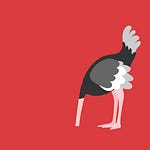In this week’s 4-Quarter Lives, Avivah Wittenberg-Cox is joined by Dr. Saher Mehdi- molecular biologist, longevity researcher, and healthcare entrepreneur, to explore what it truly means to age well.
Saher traces her journey “from molecules to meaning,” beginning with a childhood curiosity sparked by her grandmother’s ageing hands. That moment led to a lifelong inquiry into the biology of ageing, one that took her across continents and disciplines. With a PhD from Durham University and postdoctoral research at Oxford, Uppsala, and KU Leuven, her research has spanned cell fate, cardiac regeneration, epigenetics, and the stress responses that shape how, and how fast, we age.
But her understanding of ageing evolved beyond the lab. Living and working in the UK, Sweden, and Belgium deepened her appreciation for how biology is shaped by culture, climate, and inequality. Returning to India, she saw the urgent need to translate cutting-edge science into accessible, personalised tools, especially in a country where 1 in 6 people will be over 60 by 2050, and where rising rates of diabetes and heart disease reveal a unique intersection of genetic vulnerability and environmental risk.
Through her company ReWise Health, Saher is building a new approach to ageing — using AI and biomarker data to assess biological age, personalise interventions, and prevent disease before it strikes.
She makes the case that ageing itself, not just chronic diseases, is the leading driver of mortality, and that slowing cellular ageing could add more healthy years to life than curing cancer or heart disease. In a striking metaphor, she compares female mitochondria to fuel-efficient hybrid engines, while male mitochondria resemble high-performance machines that burn through energy faster, illustrating the cellular gender gap in ageing.
Saher continues to unpack the science of gendered ageing through telomeres, the protective caps at the ends of chromosomes that erode with time and stress. Women, she notes, tend to have longer telomeres and slower attrition, thanks to estrogen and the second X chromosome. But she also critiques the deep male bias in medical research: for decades, women, particularly post-50, have been excluded from clinical trials, creating massive knowledge gaps in care.
She calls for a shift in longevity science, away from elite biohacking and toward public health equity, especially for ageing women in low-resource settings. Through ReWise, she’s designing a culturally relevant, scalable model for biological age testing and intervention, one rooted in empathy, science, and real-world impact.
Dr. Saher Mehdi is a molecular biologist, epigenetics expert, and two-time founder in the field of preventive health and longevity. She founded Wellowise and now leads ReWise Health, a cutting-edge biotech building tools to personalise ageing and extend healthspan.
With a PhD from Durham and postdoctoral research at Oxford, Uppsala, and Leuven, her work spans cell fate, cardiac regeneration, cellular stress, and the biology of ageing.
A global voice in the science of longevity, Dr. Mehdi is redefining how we understand, measure, and optimise the experience of growing older with data, compassion, and vision.



Useful Links:
ReWise Health website
Saher Mehdi’s Substack blog
Saher’s X account
Saher Linkedin














Share this post